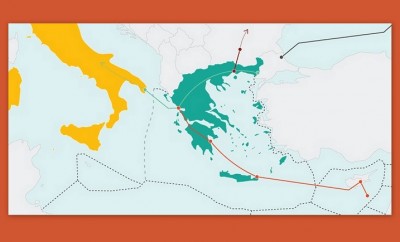
The Coronavirus Closes Borders
The border between the United States and Canada has been closed. I don’t recall that ever happening before; I’m not sure what it is supposed to achieve, given that the coronavirus is rampant in both countries, and I don’t know how to close a border that is wide open for miles and miles. I only know that Ottawa and Washington are satisfied with the arrangement.
One of the most important consequences of the pandemic is that borders have been becoming barriers. Borders have always mattered, of course, but as international trade intensified, they were in some cases more checkpoints than barriers, and in other cases more mile markers than checkpoints. By no means was this universal or universally accepted, but the principles of unhindered international trade, what some called globalism, were pressing toward the kind of border the U.S.-Canada frontier typified.
Nowhere was this principle embraced more than in Europe. As Europe recovered from World War II, the notion of economic integration became more powerful and, with it, so too did the idea that borders were not to be barriers. In 1991, the Maastricht treaty was signed, institutionalizing the idea of open borders. The European Union embraced four freedoms: the free movement of goods, the free movement of capital, freedom to establish and provide services, and the free movement of people. Europe also established the Schengen zone, which allowed citizens to move between nations as if they were actually a single country. Nations continued to exist, and national governments were elected, but at the same time the borders became markers. That movement has now been interrupted and national borders have once again become barriers.
Συνέχεια ανάγνωσης εδώ
Πηγή: geopoliticalfutures.com




